What is Breast Cancer?
 Breast cancer is a disease marked by the unusual growth & spread of cells that develop into a cancerous tumor in the breast area.
Breast cancer is a disease marked by the unusual growth & spread of cells that develop into a cancerous tumor in the breast area.
This type of cancer may start in the mammary glands, the part of the breast that produces milk, or in the milk ducts leading to the nipple.
Breast cancer usually strikes women, but men can also be diagnosed with it.
SYMPTOMS TO WATCH OUT FOR
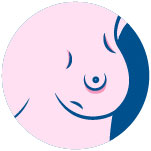
Depressions or indentations on your breasts
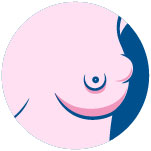
Noticeable lumps on your breasts
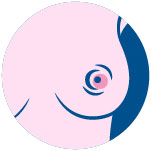
Inverted nipples or nipples turning inward
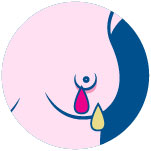
Blood or pus coming out of the nipple
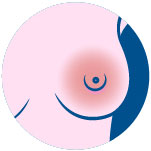
Changes in the color and feel of the skin on your breasts
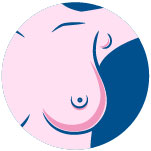
Swelling in all or part of the breast including lumps in underarms
Consult your health care provider if you notice any breast changes.
Risk Factors
Risk factors indicate a higher chance of developing breast cancer. It must be noted that having these risk factors doesn’t mean breast cancer is definitely in your future.
On the other hand, there are also women who have developed breast cancer without any of the risk factors.
Many factors can increase a woman’s risk of developing breast cancer:

Age
Growing older

Family History
Especially if close relatives such as your mother, child or sister were diagnosed with breast cancer

Personal Medical History
If you have had breast cancer

Early Onset of Menstruation
Before 12 years of age

Late Menopause
After 55 years of age

Not having borne children or not having borne them before 35 years of age

Being Overweight
The risk becomes higher when overweight during menopause

Alcohol Consumption

Smoking

Prolonged use of Hormonal Replacement Therapy or Estrogen Replacement Therapy
GUIDELINES FOR EARLY DETECTION

Learn and perform a breast self-exam (BSE) monthly.

Do a monthly BSE. Have an annual clinical breast exam by a doctor, or trained medical worker.

Continue monthly BSE. Schedule an annual clinical breast exam. Have a mammogram every year.
EARLY BREAST CANCER DETECTION IS YOUR BEST PROTECTION
Myths vs Truths

Breast cancer only afflicts women.

Men can get breast cancer, even though it’s rare. Male patients account for 1% of breast cancer cases, worldwide.

You can get breast cancer if your breasts are bumped, punched or hit.

Suffering some form of impact on the breasts, such as bumping or hitting them, may lead to the discovery of cancerous tumors that have been there all along. The impact itself did not cause the breast cancer.

Surgical operations to remove breast tumors can cause cancer cells to spread.

Surgical procedures that remove tumors do not cause the spread of cancer cells. Surgery is needed to extract certain breast tumors so doctors can determine whether the tumor is malignant or cancerous. Removing cancerous tumors is usually part of breast cancer treatment.

If you do not have family history of cancer, you’re completely safe from getting breast cancer.

Even if no one in your family has ever had cancer, you can still get breast cancer. About 70% of breast cancer patients have no family history of cancer.

Breast lifts or breast augmentation using fillers can cause breast cancer.

No medical study has shown that plastic surgery on the breasts can cause breast cancer.

Breast cancer tends to strike women who are not married or sexually active.

Breast cancer can happen to anyone, whether married or single.

Using deodorants and bras with tight underwire can cause breast cancer.

There are no medical studies linking the use of deodorants, or underwire bras, to getting breast cancer.

Certain herbal medications and dietary supplements can cure breast cancer.

No herbal remedy or health supplement currently on the market, has been proven to directly kill cancer cells.

Breast cancer is contagious, and I can “catch” it from patients.

You cannot “catch” breast cancer or pass it on through contact. If cancer runs in your family, it’s possible to inherit the disease genetically.

Having breast cancer is a death sentence. There is no cure.

Breast cancer can be cured, especially when caught in the early stages.